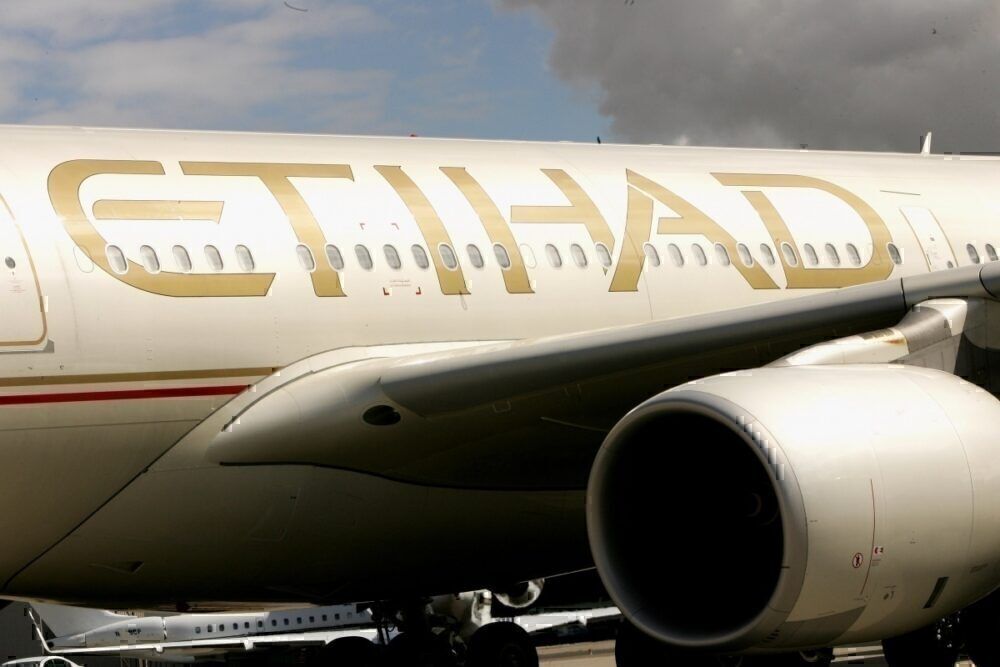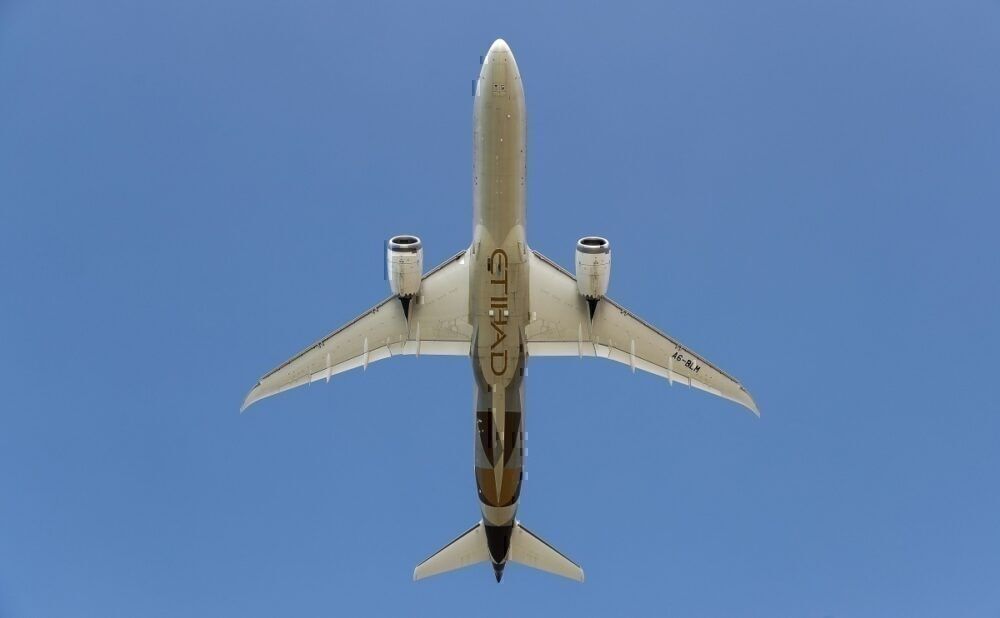Etihad has today shared details of its activity for the second quarter of this year. Amid the global health crisis, the Abu Dhabi-based carrier only served 30,000 passengers between the period of April and June.
A challenging year
According to a press release seen by Simple Flying, the airline only filled 16% of available seats compared with 74% between January and March. Moreover, 3.43 million passengers were onboard its services during the first three months of this year. Therefore, the firm was only serving a fraction of its customers during the second quarter.
Furthermore, with 70% of its fleet grounded, there was a 99% drop in passenger numbers and a 95% drop in available seat miles (ASK) compared to the second quarter of 2019. These numbers coincide with the ongoing pandemic. Most operators are reporting similar dire numbers across their operations.
Stay informed: Sign up for our daily aviation news digest.
Etihad heavily relies on international travel for its income. The UAE outfit uses its hub as a key connecting tool across the nations. Moreover, it usually serves approximately 160 destinations across over 80 countries in six continents. So, with all the travel restrictions that have been in place over the spring and summer, it's not surprising that only tens of thousands of fliers boarded the airline's aircraft during this time.
The bulk of the passenger services would have been in the form of the company's repatriation flights. There would have also been some activity following the resumption of a limited network of transfer services via Abu Dhabi from the beginning of June.
Trying to adapt
For Q1, Etihad reported $950 million of passenger revenue. However, this considerably dropped to $60 million for Q2. The change in circumstances led the carrier to ramp up its cargo services. It earned $170 million from shipping during the first quarter, which was increased to $320 million in the second quarter. Regardless, the firm's core operating loss intensified to $758 million in the first half of 2020.
Etihad Aviation Group CEO Tony Douglas recognizes that his company faced enormous and unpredictable challenges in the first half of this year. Nonetheless, he is looking forward to gradually growing again in the coming months.
“While we have revised our outlook for the rest of 2020 based on current realities, we remain optimistic that as international borders re-open, we will increase our flying and carry more guests securely and with greater peace of mind, supported by the Etihad Wellness programme and our new Wellness Ambassadors," he said, as per the press release.
"By September, we aim to increase our worldwide flights to half our pre-COVID-19 capacity. Looking forward, we rest assured that the UAE is leading the way in the research for a vaccine against COVID-19."
Looking ahead
Altogether, as more countries adapt to the new climate and allow foreign passengers to enter, Etihad will serve more travelers. With several nations now implementing less rigid restrictions, there could be less dire numbers after the second half of 2020.
What are your thoughts about Etihad only serving 30,000 during the second quarter of this year? Do you feel that this is a surprising figure for the carrier? Let us know what you think of the airline's results in the comment section.




